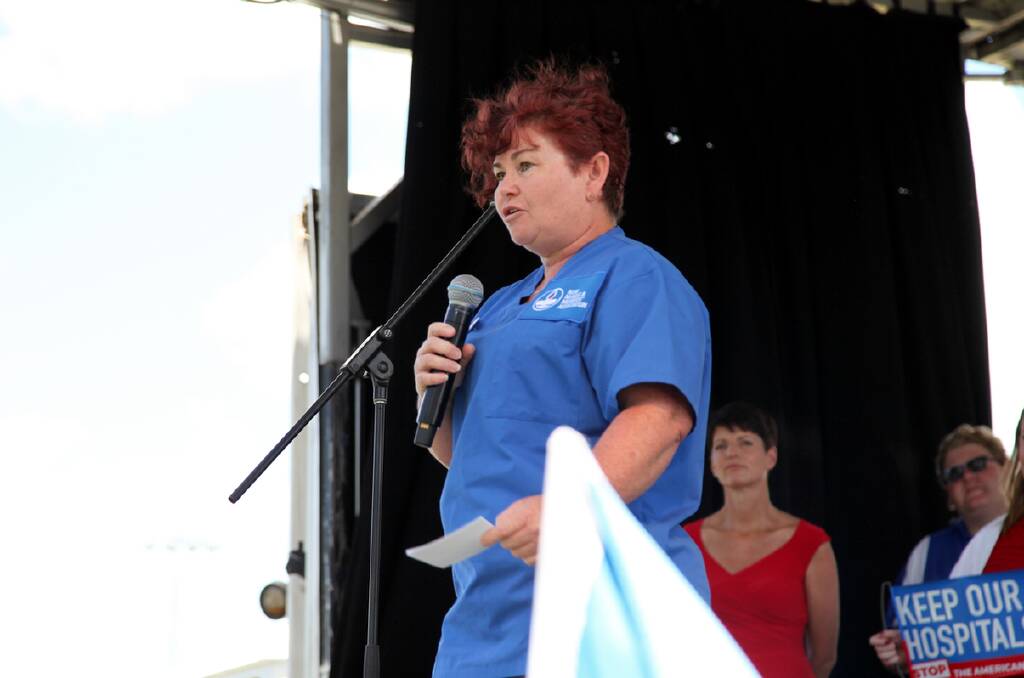
A Hunter nurse has spoken up in favour of a union push to rejig nursing staff numbers, saying health workers across the region are overworked and battling fatigue due to understaffing.
Subscribe now for unlimited access.
$0/
(min cost $0)
or signup to continue reading
Jane Burton, a registered nurse and a member of the NSW Nurse and Midwives’ Association (NSWNMA) branch at Maitland Hospital, said the introduction of nurse-to-patient ratios would help prevent burnout while improving the level of care patients received.
The ratio system, which dictates the number of nurses working on a particular ward in relation to the number of patients they care for, would replace the nursing hours per patient per day monitoring system which is currently used, which Ms Burton said was vulnerable to being “manipulated”.
The current hours-based system is balanced over seven days. However, in the past year alone, the union discovered about 26,000 hours of missed clinical nursing care across six NSW hospitals – including almost 7000 at John Hunter Hospital.
Our community deserves the same amount of nursing care as every other patient in metro areas
- Jane Burton, NSWNMA member
“By having the ratios, it’s a more transparent system that is more difficult to manipulate,” Ms Burton said.
Ms Burton said the current system was increasing “stress and fatigue” on staff outside of metro areas.
“All rural hospitals around here are in a similar position,” she said.
”Ratios means nurses are less fatigued, there are better outcomes for patients. Our community deserves the same amount of nursing care as every other patient in metro areas.”
Elizabeth Grist, the executive director of clinical services, nursing and midwifery in Hunter New England Local Health District said the current award ensured a flexible approach to staffing.
“The staffing levels provided by these methods are the minimum number of staff needed to deliver safe and effective care. Additional nurses can be provided where ward activity or patient care needs are unusually high and more staff are needed,” Ms Grist said.
Ms Grist said a range of management strategies to minimise the likelihood of work related fatigue were already in place, while at Maitland Hospital staff meet each morning to assess the capacity of the hospital at that time and planned activity for the day.


